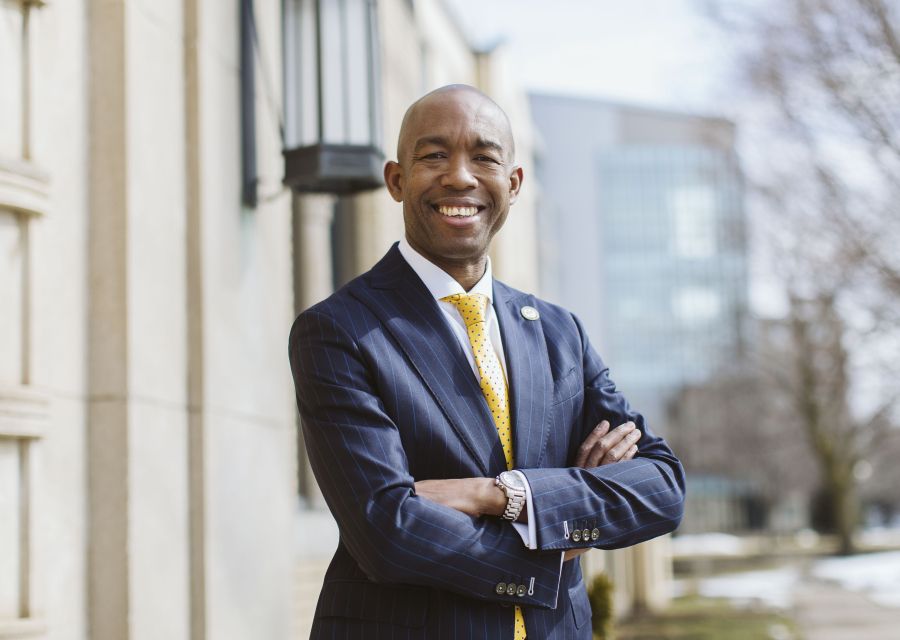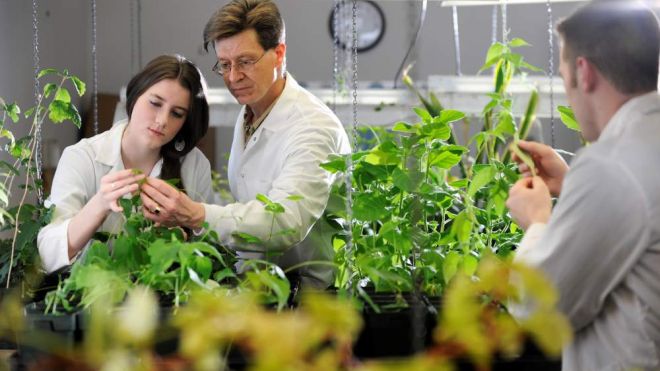
Buffalo, NY - Last month, Canisius University President Steve Stoute participated in an encounter experience to El Salvador, as part of the Association of Jesuit Colleges and University's (AJCU) Ignatian Colleagues Program (ICP). The ICP educates and informs administrators and faculty more deeply in the Jesuit and Catholic tradition of higher education. Participants engage in the rich intellectual foundation and learn through experiential opportunities in order to articulate, adapt and advance the Jesuit and Catholic mission of their institutions.
Among these experiential opportunities are international encounters, which offer participants a chance to better recognize the global engagement of the Society of Jesus in areas of education and other ministries. It is also a chance for participants to consider how the Jesuit commitment to a "faith that does justice" is at work in places beyond one's campus. Additionally, the encounter experience is an opportunity for participants to be stretched intellectually and personally by literally "encountering" people, cultures, languages, foods and more.
President Stoute traveled to El Salvador with a delegation of ICP participants. During their six day encounter, the group learned about the history of El Salvador, the oppression of the poor, the killing during the civil war, and the violence and conflict that continued in the aftermath. As President Stoute explains in his reflection below, the experience brought to life the Jesuit tradition of solidarity, which calls us to walk alongside others in their journey, learn from them and share in their common humanity.
A reflection by President Steve Stoute, JD
This will not come as a surprise to my Canisius community or to my colleagues in the Ignatian Colleagues Program (ICP) who allowed me to share in this ICP encounter, but at the outset of this reflection on the experience in El Salvador, I want to ground us in the framework of the Daily Examen. On my campus, it is well known after three years of my presidency that we begin all things with gratitude and end with hope, consistent with the guidance St. Ignatius Loyola provided us in the Daily Examen. And so, we proceed.
To the people we encountered in El Salvador: from the Provincial of the Central American Province of the Society of Jesus, to the community leader in Tepecoyo who has faithfully responded to the needs of the women and children in her village, to the staff member at the Universidad Centroamericana José Simeón Cañas (UCA) who survived the Sumpul River massacre, and the administration and children at Fe y Alegría School in La Chacra and everyone in between, you have my enduring gratitude for the gift of your radical hospitality. Your willingness to share your story, your work, your home, your pain and joy with us, felt like you were accompanying us rather than the other way around. To my companions on this journey, and our incredible facilitators, thank you for creating the space that allowed this experience to have such a profound impact on me, which I pray to convey now in this reflection.
Over the course of six days the word solidaridad was uttered so often it became the central theme of the encounter experience for me. The term solidarity took root in my mind, and I could feel myself react mentally, and perhaps physically, each time one of our Salvadoran brothers or sisters invoked it. Still now, reflecting on those conversations and interactions, something stirs in me, something that I recognize as consolation and desolation. In some ways, however, the question remains: what is the meaning of solidarity in this context? When our Salvadoran collaborators expressed their gratitude for our presence and their hope for our continued engagement, through the prism of solidarity, what exactly did they mean?
La voz con vos! This phrase appeared in the studio of Radio YSUCA — the radio station at the UCA — and again in the modest room next to the chapel at the Hospital la Divina Providencia (also known as the hospitalito) —where St. Oscar Romero lived for months before he was assassinated while celebrating Mass on March 24, 1980. The phrase la voz con vos translates to the voice with you. In the time since I returned from this brief encounter in El Salvador, that phrase has reverberated in my mind and encapsulates what I believe solidarity means in this context — a call to be the voice with our Salvadoran brothers and sisters on this journey. How do we do that? By leveraging our Ignatian tradition.
The solidarity we are being called to in El Salvador is one of accompaniment, and in that sense, it is grounded firmly in our Ignatian tradition. To accompany requires attentiveness, care, compassion, and respect. We can be the voice with our brothers and sisters in El Salvador by being attentive to their needs, listening carefully, and discerning faithfully where the Holy Spirit is leading in response. We can be the voice with our Salvadoran brothers and sisters by showing genuine care and compassion for their lived experience, allowing the stories to permeate our consciousness and inspire us to share those stories authentically within our own spheres of influence. We can be the voice with the Salvadoran people by showing respect for a culture that is rich, vibrant and alive, one that can teach us much if we come with open hearts, minds and spirits.
The future of El Salvador is not for us to know, shape or even influence, because it will be—it must be—determined by the incredible Salvadoran people themselves. What we are called to do is to lend our voice to them, to journey with them in solidarity. We can live in solidaridad by being attentive, showing care, expressing compassion, all from a place of respect, which will open us to the movements of the Spirit within, in a way that will undoubtedly spark us into action. This was my experience in El Salvador and my hope is that you will read this reflection and consider how you can place yourself in solidarity with our Salvadoran brothers and sisters because this is our way of proceeding.
AMDG
Steve Stoute
President, Canisius University



